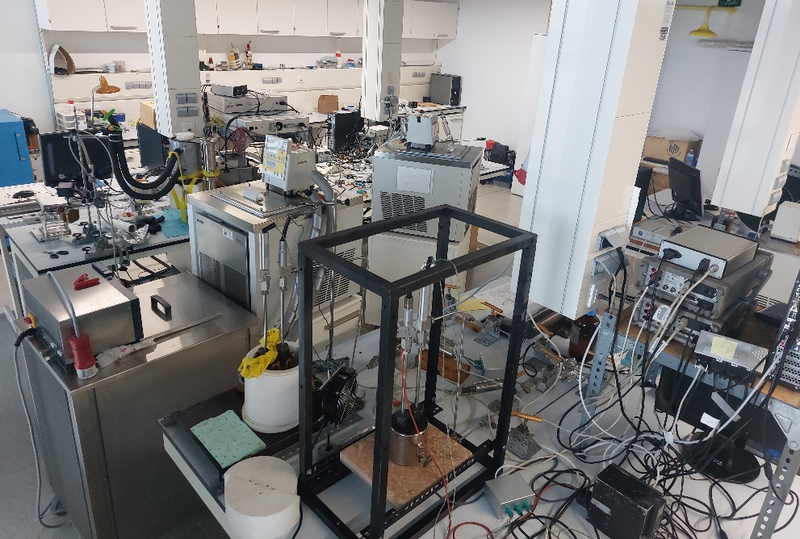European Project about the first steps towards sustainable refrigeration
Nov 29, 2024
Refrigeration systems contribute significantly to climate change. Now, a European Consortium involving institutions from France, Slovenia, United Kingdom and Spain, has been awarded with 3.4M euros EU grant for the next 4 years to develop a new all-solid refrigeration technology based on the energy exchanged during spin transitions driven by pressure: the FROSTBIT project
In 2019, refrigeration systems worldwide emitted as much greenhouse gas as the entire European Union. This impact is largely due to the frequent leaks of refrigerant fluids, which represent, for example, 30% per year of the fluids consumed by the cold storage rooms of a supermarket, according to Ademe. Among the most polluting gases lost to the atmosphere are hydrofluorocarbons (HFCs), whose global warming potential is up to thousands of times higher than CO2.
The projectg FROTSBIT aims at developing an all-solid system based on spin transition material, and it is funded by the European Innovation Council (EIC) through its Pathfinder Challenge funding call. FROSTBIT has a budget of 4 million euros for a four-year duration. FROSTBIT includes nine public and private partners from four European countries: CNRS, which coordinates the project, its subsidiary CNRS Innovation, the University of Bordeaux, the University of Lorraine, the University of Tours, TOTAL Energies OneTech in France, the Universitat Politècnica de Catalunya in Spain, the University of Ljubljana in Slovenia, and the University of Kent in the UK.
It brings together various European research groups, combining expertise ranging from the synthesis of materials using green chemistry processes to the characterization of the barocaloric properties of the resulting materials. In particular the Group of Characterization of Materials at the Department of Physics of the UPC will perform the characterization of the thermal response of the materials to pressure changes, both in powder and ceramic form.

Share: